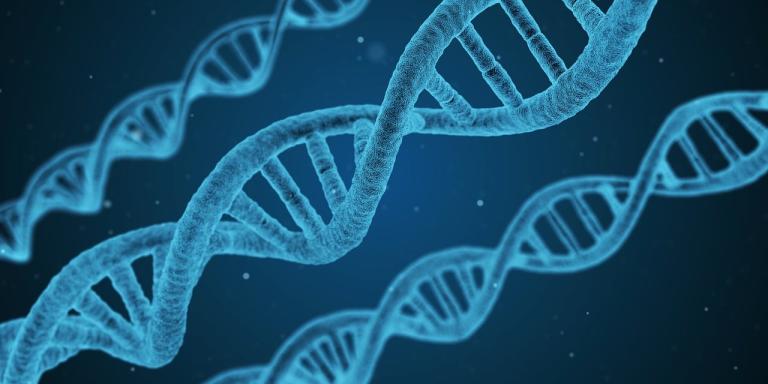
We live in a secular, reductionist, and cynical time that views anything related to the transcendent with suspicion, if not with contempt. However, for most of human history, the belief that the universe was designed and created was widely accepted. While most belief systems emphasize the existence of a God or gods, a relatively recent theory offers a different perspective.
In this essay, I will examine intelligent design, explain what it is, how it came to be, and explore whether it is compatible with Catholicism.
What is considered intelligent design is a reasonably recent formulation designed (pardon the pun) to refute the theory of evolution advanced by Charles Darwin. Despite this, aspects of intelligent design philosophy can be found in the teleological arguments of Socrates and Plato.
The modern concept of intelligent design, however, builds on the arguments of the English clergyman William Paley. Paley’s analogical argument posits that the universe appears to be the product of a very complex design. He writes, “If I stumbled on a stone and asked how it came to be there, it would be difficult to show that the answer, it has lain there forever. Yet this is not true if the stone were to be a watch.” (Paley, William. Natural Theology, Or, Evidences of the Existence and Attributes of the Deity, 1811). Paley infers from the intricate design of the universe to a universe creator/designer. Said another way, if there is a design, there must be a designer, who Paley argues is God. However, modern intelligent design advocates do not necessarily reach that conclusion. That is, they stop short of arguing that the “designer” must be a God. It is a conclusion that I will return to below.
Widely considered, intelligent design refers to a scientific (some may say pseudo-scientific) approach to obtaining evidence of design in the universe. Specifically, intelligent design posits that an intelligent cause best explains certain features of the universe and living things.
Intelligent design proponents study various natural structures to determine whether they are the product of chance, natural law, or intelligent design. Such research is conducted by observing the types of information produced when intelligent agents act. Scientists then seek to find objects with the same informational properties that we commonly know come from intelligence. For example, supporters of intelligent design observed that the functional parts and systems of living organisms are “irreducibly complex” because none of their parts can be removed without causing the whole system to cease functioning. From this, an inference is drawn that such a system could not have come about through random mutation and natural selection, as the standard evolutionary account maintains; instead, living organisms must have been created all at once by an intelligent designer. (See Behe, Michael J. Darwin’s Black Box. Simon and Schuster, 1996).
Intelligent design has applied scientific methods to detect design in irreducibly complex biological structures, such as the universe’s life-sustaining physical architecture and the fossil record’s geologically rapid origin of biological diversity during the Cambrian explosion.
Nevertheless, it is an understatement to claim that intelligent design is not without its detractors. First, critics claim that intelligent design theorists misunderstand biological mutation, thereby shedding doubt on the theory’s argument of the “irreducible complexity” of organisms. Perhaps most damning, from a scientific perspective, is the theory’s lack of verifiability. Because intelligent design does not supply the information necessary to characterize the “designer,” critics argue that it is untestable and, therefore, unscientific.
Having sought to provide a basic outline of intelligent design, I now turn to whether it is compatible with the Catholic faith. Specifically, we must ask whether Catholics can practice the faith while also adhering to the intelligent design philosophy.
To argue that belief in the Catholic faith and belief in intelligent design are incompatible, one must show that they are in contradiction, or at least contrary to each other. This does not appear to be the case, as there do not appear to be any such overt conflicts. Indeed, it is possible to argue that intelligent design aligns with various arguments in Catholic philosophy.
As indicated above, the theory shares many similarities with the arguments of Socrates, Plato, and, more recently, Saint Thomas Aquinas. The word teleology refers to the purpose or goal of a particular thing. Aquinas observes that inanimate objects in nature “act” toward a particular end. For example, an acorn’s end is to become a tree, and it “moves” toward that end. However, a thing lacking intelligence cannot act toward an end unless directed by an intelligent being. Aquinas concludes that such an intelligent being is God. As stated earlier, intelligent design does not necessarily come to that conclusion. Another example of this concept comes from DNA. DNA contains information-harboring molecules, which “instruct” cells on their operation. As the intelligent design advocate Dr. Stephen Meyer points out, information is a product of a mind. (See Meyer, Stephen C. Darwin’s Doubt. Harper Collins, 2013).
Thus far, it seems that Catholicism and intelligent design are compatible. That is true to the extent that intelligent design opposes macroevolution and deterministic philosophy. However, from a Catholic vantage point, it is insufficient.
If Catholics have any issue against intelligent design, it is the theory’s unwillingness to conclude that the “designer” is the God of the Bible. While this is wholly defensible from a scientific perspective, it is inadequate to the needs of faith and leaves matters such as prayer, salvation, and eschatology in ruins. As such, intelligent design is not an improvement over the classical teleological arguments in Catholic philosophy
In conclusion, intelligent design appears to place the classical teleological arguments from philosophy in a scientific framework. From a Catholic perspective, intelligent design can be a useful argument against advocates of a purely materialistic and deterministic philosophy. Does intelligent design get one to believe in a personal God? No, but that is not its intention, either. That is the work of the faithful.













